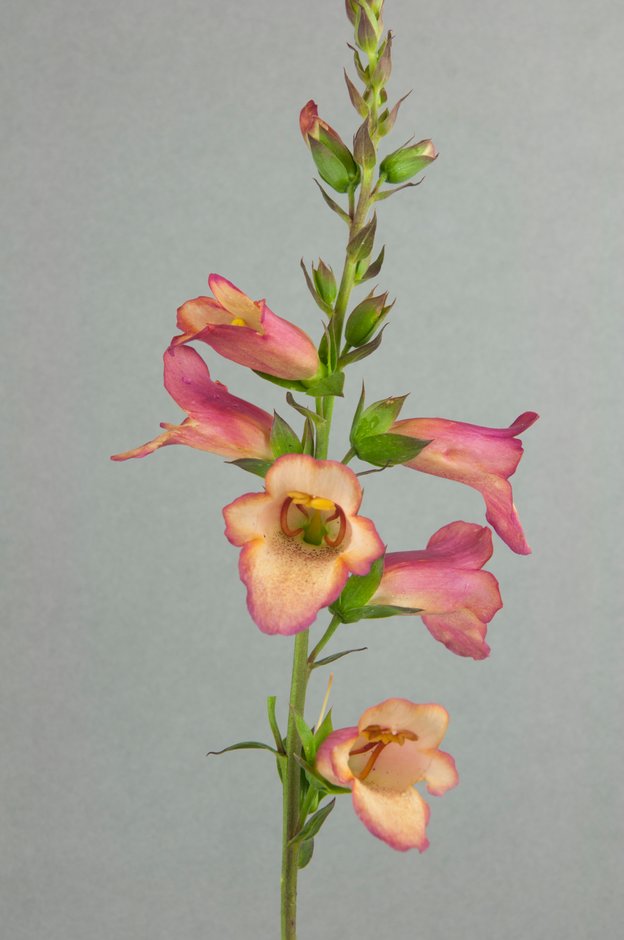Digitalis × valinii Illumination Pink ('Tmdgfp001'PBR) (Illumination Series)
foxglove [Illumination Pink]
A hybrid between the hardy native biennial D. purpurea, and the frost-tender, short-lived shrub D. canariensis. It is a sturdy, upright plant with side branching, to 90cm and has large spikes of slightly outward-facing open bell-shaped flowers. The outer surface, and the pointed lobes of each bell, are in shades of peach, pink and mauve, the throat is creamy with small mauve dots. A sterile hybrid, that still produces nectar, with a long flowering season. Winner of the RHS Chelsea Flower Show Plant of the Year in 2012
Synonyms
Digitalis × valinii 'Tmdgfp001'PBRDigitalis 'Illumination Rose' (Illumination Series)
see moreDigitalis Illumination
Digitalis Illumination Pink
Size
Ultimate height
0.5–1 metresTime to ultimate height
2–5 yearsUltimate spread
0.1–0.5 metresGrowing conditions
Moisture
Moist but well–drained, Well–drainedpH
Acid, Alkaline, NeutralColour & scent
| Stem | Flower | Foliage | Fruit | |
| Spring | Green | |||
|---|---|---|---|---|
| Summer | Orange Pink Cream Purple | Green | ||
| Autumn | Orange Pink Cream Purple | Green | ||
| Winter | Green |
Position
- Full sun
- Partial shade
Aspect
West–facing or South–facing or East–facing
Exposure
Exposed or Sheltered Hardiness
H4Botanical details
- Family
- Plantaginaceae
- Native to GB / Ireland
- No
- Foliage
- Semi evergreen
- Habit
- Columnar upright
- Potentially harmful
- TOXIC if eaten. Wear gloves and other protective equipment when handling TOXIC to pets - see the HTA guide to potentially harmful plants for further information and useful contact numbers
- Genus
Digitalis can be biennials or usually short-lived perennials forming a rosette of simple leaves with bell-shaped flowers in slender, erect, usually one-sided racemes
- Name status
Trade
How to grow
Cultivation
Will grow in almost any soil or situation except very wet or very dry; ideal site is a humus-rich soil in partial shade. A hardy perennial
Propagation
Propagate by division in spring
Suggested planting locations and garden types
- Cottage and informal garden
- Flower borders and beds
Pruning
Cut back main flower spike as it fades to encourage the growth of flowering side shoots
Pests
May be susceptible to aphids and leaf and bud eelworm
Diseases
May be susceptible to powdery mildews, downy mildews and leaf spot
Get involved
The RHS is the UK’s gardening charity, helping people and plants to grow - nurturing a healthier, happier world, one person and one plant at a time.
